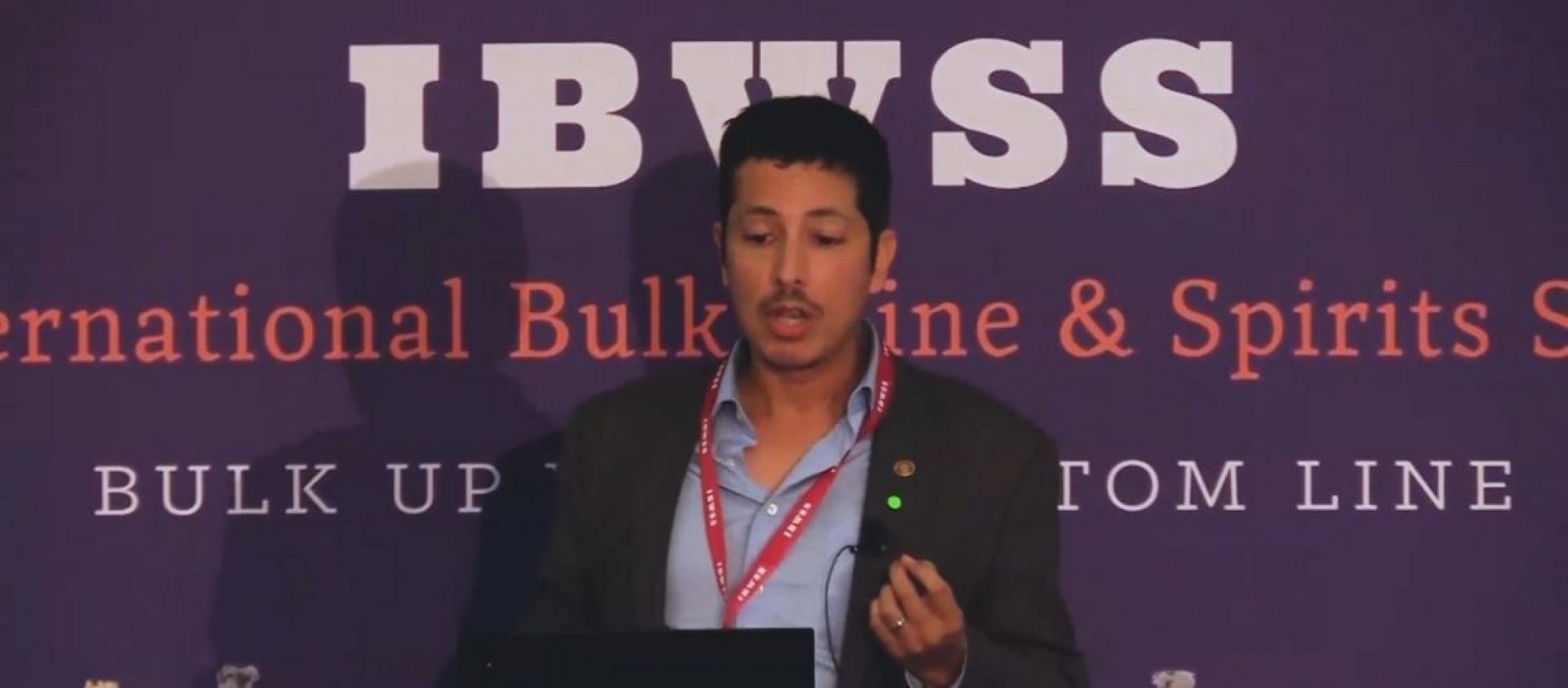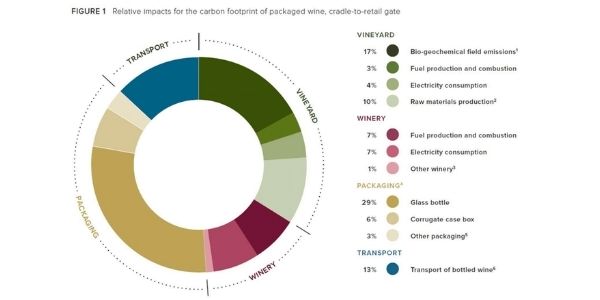Blog
Insights
Sustainability: A Rising Competitive Edge In Wine & Spirits

The new generation is all worried about sustainable purchases, and these sustainable practices can make you huge sums of money too!
Why do we need Sustainability?
To be clear about the need for sustainability, we first need to address the changes in the climate happening over the years. We should not wait until the very last moment to realize the changes. Although the changes in the climate are very negligible at the moment, we should not wait for the “tipping point” after which the ball starts rolling.

The graph given here depicts the changes in the temperature were nearly close to 18 degrees celsius which fluctuated disastrously. However, for some reason, the temperature remains constant with minor fluctuations of around 2-3 degrees celsius, and that's when life on Earth began! It is amazing to know that life exists because of the climate. Thus, to preserve this climate and not let it fluctuate, sustainability and reduction of carbon emissions have to be practiced before it is too late.
Secondly, the driving force for all the wine and spirit professionals is love and optimism. Without the love of your craft, one can not give birth to an excellent product which is only possible only in optimum climatic conditions. Thus to optimize the yield and let the cash flow in, sustainability is the way to go!
[[relatedPurchasesItems-49]]
23 countries have already gotten on the sustainability train and have reduced their carbon footprint in the last 5 years and plenty of multinational companies have started divesting from fossil fuel energies. Moreover, as a cherry on top, it makes financial sense to instill these practices in a business!
Acknowledging the facts
What is sustainability?
In layman’s terminology, sustainability often revolves around 3Ps
1. People
2. Planet
3. Profit
The first two of these principles are well understood however, the hidden principle is the PROFIT. Are you supposed to make money out of this? ABSOLUTELY YES!
Moreover, 6 shared principles were used to build the sustainability philosophy and are used in any given field and not only wine and spirits. These can be inculcated in varying degrees and proportions as required by an organization:
- Climate Action
- Water Efficiency
- Energy Efficiency
- Social Equity
- Pesticide Reduction
- Waste Reduction
Climate action is taking action about reducing greenhouse gasses, water, and energy efficiency are working towards using these resources to their maximum potential and how not wasting them. Pesticide and waste reduction is an obvious choice for any company to increase the yield.
Melting the Misconceptions
There is an obvious another school of thought that promotes Organic, Biodynamic, or Natural philosophy and an obvious question arises, How is this different from sustainability?
These philosophies are completely perfect however, they can be a part of your production or manufacturing. Companies sell their wines and spirits in a glass bottle, that's not organic, right?

This graph shows the diversification of the relative impact of the carbon footprint in the wine trade. As you can see a lot of categories have nothing to do with farming which is where you can use the organic and biodynamic practices, but what about the rest?
Thus it is not about whether sustainable practices are better than organic or biodynamic because organic and biodynamic philosophies are narrow and focus on one category rather than the entire cycle.
Would your Customers care?
It is an obvious question to ask does it matter to the customer? Regardless of whether you use these practices or not, customers are just interested in your product, right?
However, this misconception is not prevalent anymore. 60% of the customers are making sustainable choices in their purchases since 2020. That is one good thing that came out of this horrific pandemic. Additionally, a survey of 451 wine trade professionals reflected that 76% of the professionals felt the demand for sustainably produced wines and spirits has increased. Let's ask the question again, Do customers care? Yes, they do.
Recognize The Opportunity
Everything boils down to one point: whether a company can make money by following these principles or not?
Thus the 3rd P which is usually hidden however is the most important one: Profit. According to Martin, RESILIENCE & ADAPTABILITY = COMPETITIVE EDGE.
At the core of this, it is the basic economics of cost savings and basic resource management. This can be different for different businesses where resource management can be different.
1. Vineyard
For a brand to excel, the basic necessity is good fruit, and good fruit only grows when the soil health is excellent. Thus for a farmer, the top priority of producing a good grape, and using resources to manage the soil health will be a perfect start towards earning big bucks. Good soil health will lead to better water efficiency and the vines will flourish under these conditions. It will decrease fertilizer use and reduce the heat days in regions like Napa, Washington, and Oregon.
2. Winery
A large-scale winery producing close to 150,000 cases gets an electricity cost of about 70 cents per gallon. Thus to reduce this cost, one area of cost-cutting is refrigeration. Through efficient energy audits, companies can find out where the machines are using too much power and where it is not needed. Regular machine maintenance, checking the pressure on the evaporation condenser, and glycol tank insulation with a glycol pump can reduce the cost, increase efficiency and also extend the life of your machines, in a nutshell, Save Money.
Hot water sanitization where companies heat the water at 160-170 degrees Fahrenheit is not necessary for every spirit and wine. So companies can sanitize at 130-140 degrees Fahrenheit which will reduce the natural gas consumption a lot. Energy audits can give you some actionable steps to increase energy efficiency and save those hard-earned dollars.
“LIGHTER GLASS IS SEXY”
Crimson wine groups dropped their bottle weight by 16% which helped them to reduce the number of trucks for transportation and also stored more bottles in their warehouse. People don't care about your bottle weight so why not cut costs on it!
The Hidden Bottom Line
Social equity and diversity seem unconnected to profits and planets. However, it is useful to gain a competitive edge in the industry. Mackenzie has diversity when it comes to the staff working in executive roles. They found a link between these diversities and the company's financial growth that stated that diversity offered a considerable competitive edge in the business.
This diversity can be found exactly in nature. All the plants, organisms, and microorganisms are connected in this loop which makes it the most resilient system. Thus monoculture never helps.
Article by Arjun Moghe, Beverage Trade Network
If you're a bulk wine or bulk spirits supplier, contract bottler, or private label producer aiming to connect with serious trade buyers, IBWSS San Francisco is the event you can't afford to miss. Get a quotation or Book a exhibitor table.

